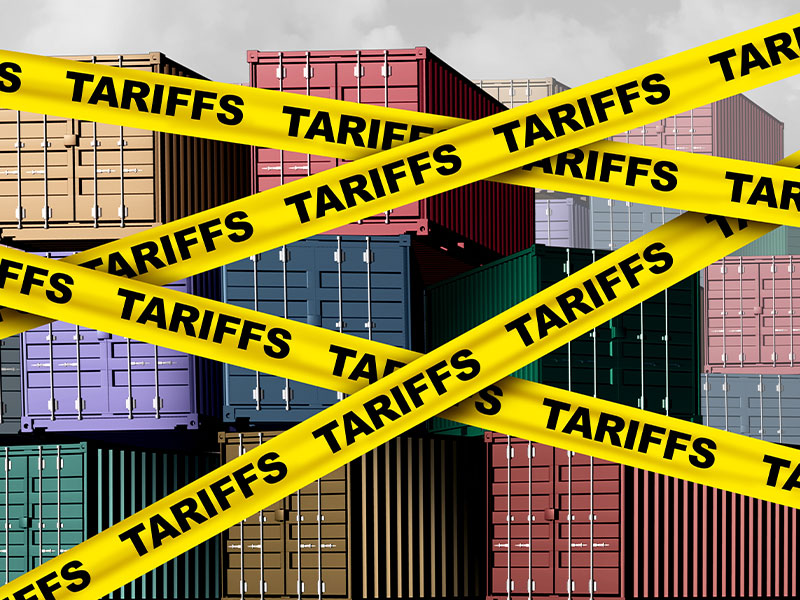

The promise of new tariffs under the incoming administration creates challenges for companies reliant on imported goods from Canada, Mexico, and China. With levies as high as 25%, businesses face rising costs of goods sold (COGS), supply chain disruptions, and potential market disadvantages. The impact can be significant for companies that depend on imported components, ranging from operational delays to strained customer relationships.
However, there’s a way to mitigate these risks. With 100% of its manufacturing based in Leander, TX, Cypress Technologies offers a dependable solution for businesses looking to avoid the challenges these fees bring. By switching to domestic suppliers, companies can stabilize costs, streamline operations, and capitalize on the “Made in the USA” advantage.
This article explains these fees, explores their impact on businesses, and outlines how U.S.-based manufacturing offers a competitive edge.
A tariff is a tax imposed on foreign-made goods, typically paid by the importing business to its home country’s government. While these fees can serve as a modest source of revenue for governments, they are often used to achieve broader goals, such as protecting domestic industries or addressing unfair trade practices.
The goal of tariffs is to stimulate domestic manufacturing by increasing costs for businesses that rely on international suppliers.
Rising tariffs create a ripple effect across industries, impacting costs, operations, and market positioning. Here’s a closer look at the challenges businesses face:
While tariffs can impact nearly every sector, some industries are more vulnerable than others due to their reliance on imported materials and components. These include:
While tariffs pose undeniable challenges, they create opportunities for businesses willing to adapt. Here are some proactive steps companies can take:
Switching to domestic suppliers like Cypress Technologies eliminates exposure to international levies, stabilizes supply chains, and reduces the risk of delays.
Highlighting the U.S. origin of your products appeals to customers who prioritize quality, reliability, and local manufacturing. This positioning mitigates the negative effects of tariffs and differentiates your brand in a crowded market.
Partnering with a U.S.-based supplier ensures dependable access to components, reducing the operational risks associated with taxes and global disruptions.
Cypress Technologies has built its reputation on delivering high-quality manufacturing solutions entirely within the United States. With operations centralized in Leander, TX, we help businesses avoid the challenges associated with international duties. Here’s how we provide value:
The evolving tariff landscape underscores the importance of securing a reliable manufacturing partner. At Cypress Technologies, we’re committed to helping businesses navigate these challenges confidently. Contact us today for a free quote and discover how we can support your growth while minimizing the impact of tariffs.
The choices electronics manufacturers make when sourcing materials go far beyond cost and efficiency. Ethical…
The manufacturing industry is transforming as businesses increasingly focus on sustainability. Instead of sticking to…
In electronic manufacturing, quality is more than a feature—it’s the backbone of every successful product…
Reducing waste in manufacturing is not just a strategic choice; it’s an essential practice for…
Once characterized by resource-heavy methods and significant waste, traditional manufacturing processes are evolving to embrace…
Control Panels are some of the most important parts of any industrial automation system, as…
This website uses cookies.